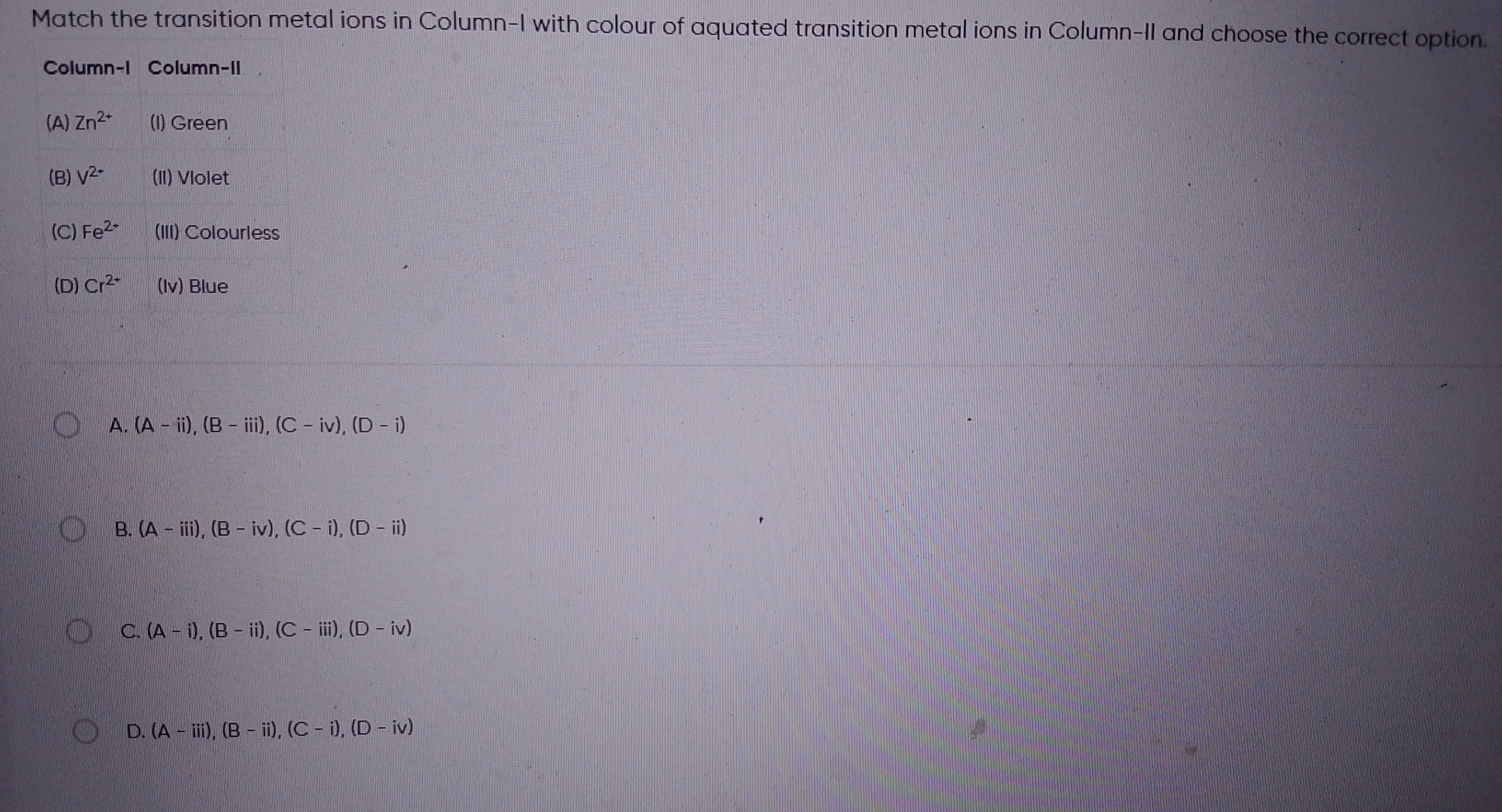Question
Question: Match the transition metal ions in Column-I with colour of aquated transition metal ions in Column-I...
Match the transition metal ions in Column-I with colour of aquated transition metal ions in Column-Il and choose the correct option.
Column-I Column-II (A) Zn2+ (I) Green (B) V2+ (II) Violet (C) Fe2+ (III) Colourless (D) Cr2+ (IV) Blue

(A - ii), (B - iii), (C - iv), (D - i)
(A - iii), (B - iv), (C - i), (D - ii)
(A - i), (B - ii), (C - iii), (D - iv)
(A - iii), (B - ii), (C - i), (D - iv)
D
Solution
Transition metal ions exhibit color due to d-d transitions, where electrons absorb specific wavelengths of visible light and get promoted to higher energy d-orbitals. The observed color is the complementary color of the absorbed light. This phenomenon requires the presence of partially filled d-orbitals. Ions with completely filled (d10) or completely empty (d0) d-orbitals do not undergo d-d transitions and are typically colourless.
Let's analyze each ion:
(A) Zn2+
- Electronic configuration of Zn: [Ar]3d104s2
- Electronic configuration of Zn2+: [Ar]3d10
- Since the d-orbital is completely filled (d10), no d-d transitions are possible.
- Therefore, Zn2+ ions are colourless.
- Match: (A) - (III)
(B) V2+
- Electronic configuration of V: [Ar]3d34s2
- Electronic configuration of V2+: [Ar]3d3
- V2+ has partially filled d-orbitals (d3), allowing for d-d transitions.
- Aqueous V2+ ions are typically violet in color.
- Match: (B) - (II)
(C) Fe2+
- Electronic configuration of Fe: [Ar]3d64s2
- Electronic configuration of Fe2+: [Ar]3d6
- Fe2+ has partially filled d-orbitals (d6), allowing for d-d transitions.
- Aqueous Fe2+ ions are typically light green in color.
- Match: (C) - (I)
(D) Cr2+
- Electronic configuration of Cr: [Ar]3d54s1
- Electronic configuration of Cr2+: [Ar]3d4
- Cr2+ has partially filled d-orbitals (d4), allowing for d-d transitions.
- Aqueous Cr2+ ions are typically blue in color.
- Match: (D) - (IV)
Combining the matches: (A) - (III) (B) - (II) (C) - (I) (D) - (IV)
Comparing this with the given options, Option D matches our derived pairs.
